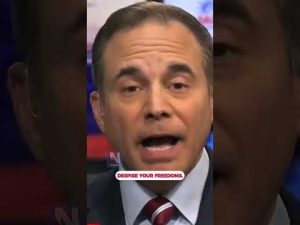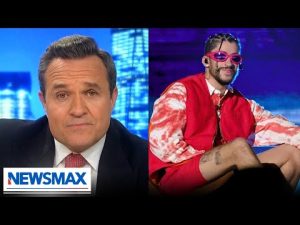In a world where celebrity influence can sway the opinions of millions, it seems that the latest figure stirring the pot is none other than the controversial reggaeton star known as Bad Bunny. This musician is not just dominating the charts; he’s also become a focal point of heated discussions around politics and social issues, igniting debates that range from cultural appreciation to which side of the aisle he stands on. Many conservative voices are raising their eyebrows, and not just a little bit, at the track record of this so-called “Bad Bunny.”
First and foremost, some folks are concerned about Bad Bunny’s past associations. Just like that pesky villain that always seems to pop up in cartoons, Bad Bunny has become a staple in conversations where the topics of generation and activism collide. He has openly supported Black Lives Matter, a move that does not sit well with some critics who argue that the movement has been more of a distraction than a catalyst for change. The controversies that surround organizations like Black Lives Matter add fuel to the fire of skepticism among conservatives who find themselves questioning what it really means to stand for social justice.
When it comes to politics, Bad Bunny’s comments about President Trump have not earned him any brownie points either. By labeling the former president as a racist, he has stepped into the lion’s den of political discourse. For many, this is similar to welcoming a carnival clown into a professional debate—it just doesn’t feel right. Bad Bunny’s alignment with vocal figures such as Kamala Harris has only intensified the scrutiny, leading to inquiries not just about his music, but about his overall impact on American values. That’s like mixing oil and water—one doesn’t really like to associate with the other.
Moreover, the reggaeton star’s refusal to perform in the United States due to his critical stance on U.S. Immigration and Customs Enforcement (ICE) raises eyebrows. Critics point out that while it’s perfectly acceptable to voice an opinion, there are certainly better ways to do it than by denying your fans a performance. Some would argue this is akin to biting the hand that feeds you. In a country that cherishes the freedom of speech, it’s interesting to see someone so vocal about certain norms while simultaneously alienating potential supporters.
Another element to consider is Bad Bunny’s on-stage antics. Many recall unforgettable performances from the past—such as Snoop Dogg and Dr. Dre, who were synonymous with their own set of controversies. With lyrics that often glorify a life of crime and a disregard for law enforcement, it’s no wonder that conservative critics are hesitant to embrace the Bad Bunny wave. The call for a “cultural correction” has never been louder, with many believing that a return to wholesome, unifying messages in music and entertainment is sorely needed.
As Bad Bunny continues to make headlines, conservative observers remain cautious, watching how this enigmatic character influences younger generations. While some may dance along to his catchy beats, there’s an underlying current of concern about what messages are being celebrated. It’s as if society is performing a high-stakes dance, and one wrong step could lead to a cultural misstep that many believe is long overdue for some reflection and redirection. As the debate rages on, one thing remains clear: the conversation about Bad Bunny is just getting started.







